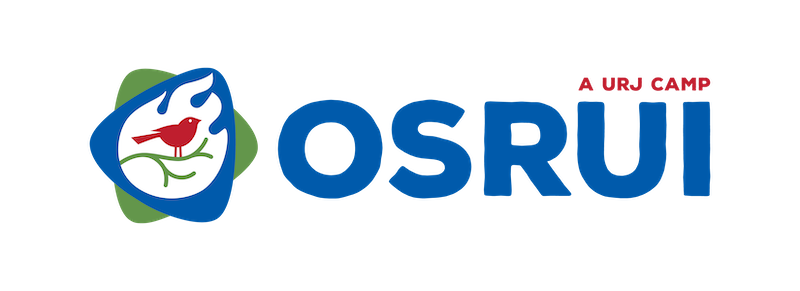Rabbi Isaac Serotta, Lakeside Congregation for Reform Judaism, Highland Park, IL, and Avodah Segel
It is unusually quiet in OSRUI right now. After a very busy morning everything is silent. No, it’s not Shabbat. It’s the day after. Moshavah left early this morning for biking, hiking, rock climbing or canoeing. Three units have gone off to a waterpark for the day, and two units, Kallah Gimmel and Chalutzim finished their summers. The parents have come to get them; the buses and vans have left for Chicago and Minneapolis. There is only one unit left in camp for now.
It is the unit that I am blessed to work with, Avodah. What does Avodah do while everyone else is out of camp? They do what they always do. They work. The Hebrew word Avodah means work, but it has special connotation that the English word doesn’t quite convey of “holy work.” And that’s how Avodahniks feel about their contribution to the OSRUI community. Early this morning they were schlepping the luggage for Chalutzim and Kallah. Every parent checked into camp with an Avodahnik and checked out with another one. Every parent met an Avodahnik who offered to help pack the luggage into a car.
That was just the beginning of their day. Now they will go about their regular rotations, cleaning the grounds, sanitizing the Mirpaah (Health Center), staffing the Misrad (office), mopping the Chadar Ochel (Dining Hall) carting off the garbage and making sure that camp is ready for the next event.
They do this work, not only competently, but with Ruach (energy and spirit). They do it whether anyone is watching or not. Even when other kids are at a waterpark, these kids, 17 years old, are making camp hospitable for everyone. When something needs to be done, Avodah is doing it. One day these Avodahniks will be madrichim at camp, but more than that, one day they will be leaders of the Jewish community wherever they may live. They do it for their love of camp and their love of Judaism.
That’s why I consider it an honor to be the rabbi who staffs this unit. They bring that same spirit and energy to our discussions. We have been looking at Reform Responsa, responses to questions that the 613 Mitzvot do not answer explicitly. This is a framework that allows us to learn about God, about thoughtful decision-making, about Jewish tradition, and about new ways of thinking about sticky situations that life hands us. The ancient rabbis, whose voice we hear in the Talmud, knew how to disagree without animosity. They listened and learned and they disagreed and debated, but they always knew they had a common cause. They took joy in their debates and discussions. Sitting with Avodah is a little like that. We accept each other, accept diverse opinions, nobody is silenced, and nobody feels that they can’t offer an idea. It is a recipe for great discussions and good learning.
I am truly blessed to spend two weeks with these great young men and women, these students of Judaism and of life. It is a joy to be part of this holy community.
